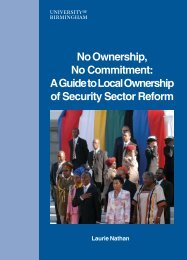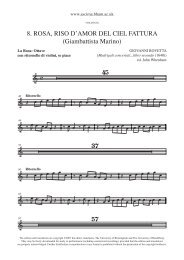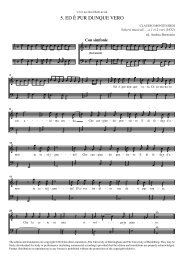Birmingham Environment for Academic Research - University of ...
Birmingham Environment for Academic Research - University of ...
Birmingham Environment for Academic Research - University of ...
- No tags were found...
You also want an ePaper? Increase the reach of your titles
YUMPU automatically turns print PDFs into web optimized ePapers that Google loves.
Optimal voting rules <strong>for</strong> two-stage committeesIn many environments, committees are required to make both preliminary and subsequent,final decisions: bills must typically survive two parliamentary votes to be adopted; couplestypically are first engaged be<strong>for</strong>e marrying; employees may be probationary hired be<strong>for</strong>ebeing granted a permanent position. Within such environments, committee members mustdecide how to vote: adopting a candidate at the preliminary stage allows the committee toglean more in<strong>for</strong>mation about them; turning the candidate down at either stage allows thecommittee to search <strong>for</strong> a new candidate. What voting rules should a committee adopt atthe preliminary and final stages if it wishes to efficiently trade <strong>of</strong>f its impatience against adesire to make the right decision?Each <strong>of</strong> the voting rules considered reduces to a polynomial equation. As these are typicallyabove fifth order, they are not – by Galois’ theory – solvable in radicals. We there<strong>for</strong>e use Magma to implement techniques fromalgebraic geometry, allowing us to solve <strong>for</strong> those points at which the yields <strong>of</strong> two voting rules per<strong>for</strong>m equally. By testing the votingrules against these solutions, we may determine the domain over which any particular rule is optimal.Committees that are patient, or which are highly able to glean in<strong>for</strong>mation from probationary candidates should adopt a rising thresholdrule, under which the probationary threshold is easy to leap, but the final one difficult. Committees that are either impatient or lessable to glean in<strong>for</strong>mation from probationary candidates should make both thresholds low. These results there<strong>for</strong>e provide a consistenttheoretical underpinning <strong>for</strong> intuition. We also find, less intuitively, that a committee’s per<strong>for</strong>mance can deteriorate if its ability toglean in<strong>for</strong>mation from candidates improves: optimistic committee members may be more willing to initially vote in favour <strong>of</strong> an option,in the hope that their pessimistic colleagues will be convinced by the candidate’s per<strong>for</strong>mance; ins<strong>of</strong>ar as this delays the committee’sDr Colin RowatDepartment <strong>of</strong> EconomicsPage 9








